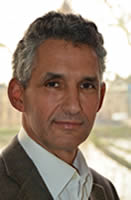Moved post
This is a Royal Society of Medicine Webinar
https://www.rsm.ac.uk/resources/rsm-live/
For health professionals, by health professionals.
This webinar series is dedicated to give healthcare workers on the frontlines, regular and easy-to-access updates from healthcare leaders on COVID-19.
Chaired by leading experts, these webinars will discuss different topics and challenges that healthcare workers, leaders and the public are facing, and how we are responding.
Food for thought?
Episode 54: One year on, what have we learned?
Date: Thursday 10 December 2020
Time: 12:30pm - 1:15pm GMT
Dear Sir/Madam,
A year on from the first recorded cases of COVID-19, Professor Tim Spector joins us this afternoon to discuss how the virus has spread through the UK, and the success of the measures put in place to suppress it.
Lead scientist on the ZOE COVID Symptom Study app, Professor Spector has spent the year tracking the virus using symptom data inputted by 4.5m people across the country.
Using insights from the ‘largest community monitoring of COVID in the world’, Professor Spector will speak about the impact of national lockdowns, firebreaks, and the tier system.
He will also tell RSM President Professor Roger Kirby about his predictions for the vaccine roll-out, and whether we can expect a third wave in the new year.
As usual, there will be plenty of opportunities for Q&A during this webinar. We invite you to submit your questions when you register or during the live broadcast.
Join in the conversation online using #RSMLive
Follow us on Twitter: @RoySocMed
Guest speaker
Professor Tim Spector OBE
Lead Scientist, ZOE COVID Symptom Study app, Professor of Genetic Epidemiology and Director of the TwinsUK Registry at King's College London
Free to watch on Zoom. Register now to join live today at 12:30pm GMT.
Reply-To:
rsm.replies@rsm.ac.uk
Head of Department
Professor Tim Spector
MB MSc MD FRCP
Tim Spector is a Professor of Genetic Epidemiology and Director of the TwinsUK Registry at Kings College, London.
He trained originally in rheumatology and epidemiology. In 1992 he moved into genetic epidemiology and founded the UK Twins Registry, of 13,000 twins, which is the richest collection of genotypic and phenotypic information worldwide.
He is past President of the International Society of Twin Studies and directs the European Twin Registry Consortium (Discotwin) and collaborates with over 120 centres worldwide.
He has demonstrated the genetic basis of a wide range of common complex traits, many previously thought to be mainly due to ageing and environment. Through genetic association studies (GWAS), his group have found over 500 novel gene loci in over 50 disease areas.
He has published over 800 research articles and is ranked as being in the top 1% of the world’s most published scientists by Reuters. He held a prestigious European Research Council senior investigator award in epigenetics and is a NIHR Senior Investigator.
His current work focuses on omics and the microbiome and directs the crowdfunded British Gut microbiome project.
Together with an international team of leading scientists including researchers from King’s College London, Massachusetts General Hospital, Tufts University, Stanford University and nutritional science company ZOE he is conducting the largest scientific nutrition research project, showing that individual responses to the same foods are unique, even between identical twins. You can find more on
https://joinzoe.com/
He is a prolific writer with several popular science books and a regular blog, focusing on genetics, epigenetics and most recently microbiome and diet (The Diet Myth).
He is in demand as a public speaker and features regularly in the media.
For more information visit
Professor Tim Spector's research profile.

